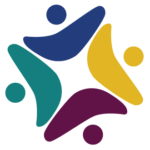Below is a list of resources that are free to use. If you are looking for something that is not listed below, please contact us!
Positive Personal Profile
The PPP is a simple document outlining an individual’s interests and strengths, used to identify what is important and what the individual aspires to achieve. The focus is on skills and preferences, rather than labels and deficits. This positive approach helps us to determine what the individual can do and loves to do. It also identifies the person’s passions and values, which helps to determine what is meaningful for the individual.
Life Skills Assessment
TransCen, Inc.’s Life Skills Assessment is a simple, one-page survey that measures an individual’s ability to function safely and effectively in our world. The tool uses a 5-point rating scale to evaluate an individual’s level of independence and support needs across a number of life domains (i.e., home, community, social competencies).
Employment Process Guide – Resources
- Discovery And Assessment Process Log (PDF)
- Family Interview Form (PDF)
- Family Session Worksheet (PDF)
- A Future that Includes Employment Presentation (PowerPoint)
- Informational Interview Questions (PDF)
- Informational Interview Site Visit Form (PDF)
- Elevator Speech (PDF)
- Examples of Waste in Business (PDF)
- Job Development Plan (PDF)
- Job Seeker Features To Benefits Form (PDF)
- Know Your Network (PDF)
- Lighting The Way (PDF)
- Sample Employer Proposal Letter (PDF)
- Sample Youth Vision Statement (PDF)
- Employer Proposal Letter Sample (PDF)
CRP Pre-ETS Guidebook
CRP Pre-ETS Guidebook: Strategies for community rehabilitation providers to collaborate on Pre-ETS (PDF)
This easy to use Guide provides information, strategies and resources Community Rehabilitation Providers (CRPs) can use to deliver Pre-employment transition services to students with disabilities. Additionally, CRP staff, Vocational Rehabilitation staff and educators will find ideas and tools to build and enhance their partnerships.
Pre-Employment Transition Services
Pre-Employment Transition Services: A Guide for Collaboration Among State Vocational Rehabilitation Agencies and Education Partners (PDF)
Educational and vocational rehabilitation programs each have key roles and responsibilities in improving post-school outcomes for students with disabilities. To help facilitate understanding, and promote local discussion and planning, this Guide has been developed for educators and VR Counselors to use to enhance their partnership and improve coordination of services to students with disabilities. Also included is a section with information and tools for engaging families in the transition planning and support for their student.
Findings from Rehabilitation Research and Training Center on VR Practices and Youth (2014-2020)
The Center conducted research and provided trainings and technical assistance in order to provide a comprehensive overview of the effective strategies, methodologies, and models of VR services provided to youth and young adults with disabilities in our country. Six interrelated, novel research studies were conducted, leading to publications, related products, tools, and other resources, all providing up-to-date, evidence-based information to educators, rehabilitation professionals, youth with disabilities and their families, advocates, researchers, and policymakers on improving VR service delivery to accomplish the long-term goal of improving the lives of transitioning youth with disabilities and their families.
The Center was operated as a partnership between TransCen, Inc., the University of Maryland, Mathematica Policy Research, Inc., and the Institute for Community Inclusion at the University of Massachusetts-Boston. It was supported through a grant from the U.S. Department of Education, National Institute on Disability and Rehabilitation Research.
The publications and resources developed by the Center are provided below –
Employment Outcomes
Briefs
- Research Brief – Measure Twice, Cut Once, Part 1: Using the RSA-911 Case Service Report to Monitor Pre-Employment Transition Services
- Research Brief – Measure Twice, Cut Once, Part 2: Using VR Agencies’ Administrative Data to Monitor Pre-Employment Transition Services
- Research Brief – Measure Twice, Cut Once, Part 3: Developing Performance Metrics to Monitor Pre-Employment Transition Services
- Research Brief – Transition-Age Youth who Seek Services at Vocational Rehabilitation Agencies for the Blind: Six-Year Outcomes
- Research Brief – Vocational Rehabilitation Outcomes for Students Participating in a Model Transition Program
PowerPoints
- PowerPoint – Using VR Data to Improve Outcomes for Transitioning Youth
- PowerPoint – Collecting Quality Data: Why It Matters and Guidance to Improve Our Process
Reports
VR Practices
Briefs
- Issue Brief – Employment Programs for Transition-Age Youth with Disabilities that Feature Vocational Rehabilitation Services and Supports: A Literature Review
- Issue Brief – Performance Management for State Vocational Rehabilitation Agencies Serving Transition-Aged Youth
- Issue Brief – State Vocational Rehabilitation Agencies’ Early Implementation Experiences with Pre-Employment Transition Services
- Issue Brief – Supporting Transition-Aged Youth After WIOA: A Look At State Vocational Rehabilitation Agencies
- Research Brief – State VR Agency Counselors’ Perceptions of Their Role in Implementing Transition Services Under WIOA
- Research Brief – Transition Practices of Vocational Rehabilitation Counselors Serving Students and Youth with Disabilities
Excel
PowerPoints
Post Secondary
Briefs
- Practice Brief – College Experiences Can Foster Both Student Self- Determination and VR Support
- Practice Brief – Meeting the New Requirements of WIOA through Partnerships with Institutions of Higher Education Enrolling Students with Intellectual and Developmental Disabilities
- Practice Brief – Summarizing Pre-Employment Transition Services and the Potential Role of Higher Education
- Practice Brief – The Importance of Formal and Informal Communication Strategies in Maintaining Effective Partnerships Between Vocational Rehabilitation and Inclusive Higher Education Programs
- Practice Brief – VR’s Role in the Seamless Transition from Higher Education to Employment
- Practice Brief – What is Inclusive Higher Education for People with Intellectual Disabilities, and How Does it Connect to Vocational Rehabilitation? A Primer for VR Leaders and Practitioners



